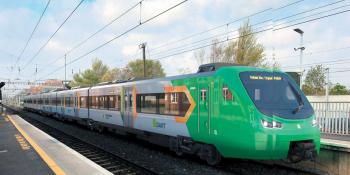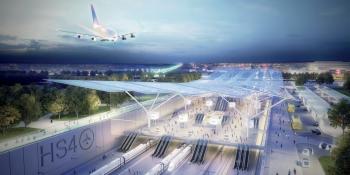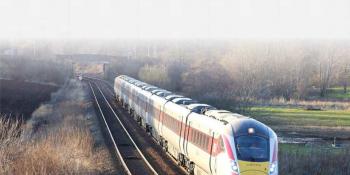INAUGURAL TRIP MARRED BY TECHNICAL HITCHES
News Front
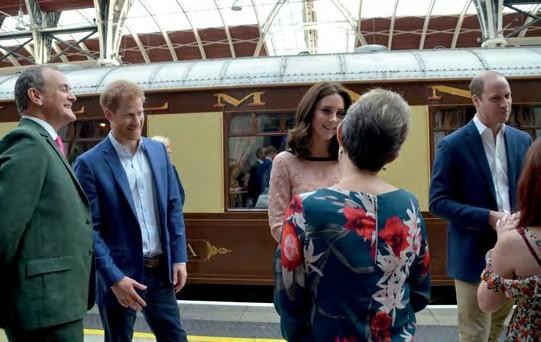
GREAT WESTERN Railway introduced its first Hitachi-built Inter-city Express (IEP) into passenger service on 16 October 2017.
Part of a £5.7 billion fleet procured by the Department for Transport to cover both the Great Western and East Coast main lines, the first service was the 06.00 Bristol Temple Meads to Paddington, which consisted of two five-car bi-mode units (Nos 800005/006) coupled together; however, the maiden journey encountered a series of issues (see p10). A second pair of units (Nos 800008/009) also entered service shortly afterwards from Paddington, and enjoyed a more successful debut.
Hitachi Rail Europe managing director Karen Boswell apologised for the issues encountered during the first journey, saying ‘I am… very sorry and disappointed that today’s first passenger train from Bristol encountered technical issues, causing a delay to the service and an air conditioning issue which resulted in water entering the carriage rather than being discharged externally. This was not to a standard that Hitachi expects…
‘We can and will do better. Our depot teams are as a matter of priority investigating the root causes of today’s technical issues, and we will ensure that these are corrected as quickly as possible.’ A video apology from
Ms Boswell was also posted on the manufacturer’s Twitter feed.
ROLL OUT
As of mid-October, seven five-car Class 800s were available to GWR for passenger service. The operator will introduce a total of 57 ‘800s’ – 36x5-car and 21x9-car units, all of which will be delivered as bi-modes capable of running on both diesel and electric power following delays to the Great Western electrification programme (the nine-car units were originally due to be built as EMUs, with only a last-mile diesel capability). They will initially operate on the routes from Bristol and South Wales to London, but will also serve Taunton and the North Cotswold line by December and the South Cotswold line from Cheltenham to Paddington by next summer.
A separate fleet of 22x5-car and 14x9-car Class 802s. also built by Hitachi, will follow from summer 2018, primarily for services between London and Devon and Cornwall.
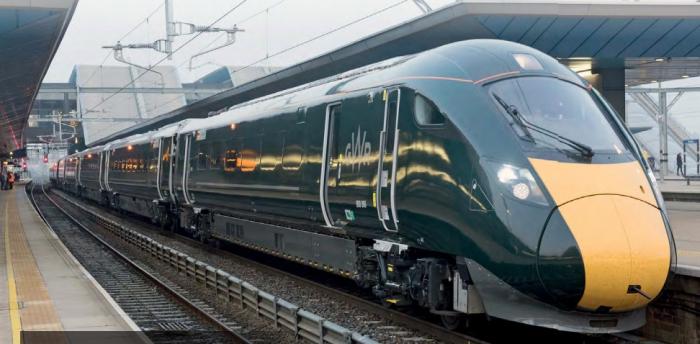
The IEP fleet has been funded by Agility Trains. Agility Trains West, which is funding the GWR Class 800 fleet, is made up of
Hitachi, John Laing Group and John Laing Infrastructure Fund. The second IEP fleet of Class 800 bi-modes and Class 801 EMUs for Virgin Trains East Coast (which the operator has dubbed the ‘Azuma’) is due to enter service from December 2018. Hitachi is assembling most of the Class 800 fleet at its Newton Aycliffe facility in County Durham. The new trains offer 24% more seating capacity than the HSTs they replace, along with increased legroom and luggage space and more tables. Hitachi will also maintain the IEP fleet for 27.5 years under the contract with DfT, and has built new depots at North Pole in west London and Stoke Gifford in Bristol, with a further smaller facility located at Swansea.
GWR plans a significant timetable change in January 2019 to realise the full benefits of the new fleet. More frequent services are planned to include four trains per hour between Bristol and London (two via Chippenham and two via Bristol Parkway) along with journey time cuts of 17 minutes from London to Bristol and 14 minutes from London to Swansea.
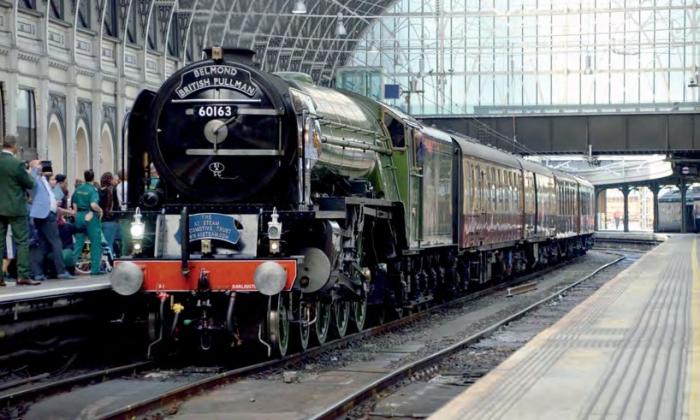
Meanwhile, there is evidence of further slippage in the electrification programme: according to Neil Thompson, Network Rail’s Infrastructure Projects Regional Director, in a recent NR publication, there is ‘a commitment to deliver the core section of electrification between Paddington and Cardiff by March 2019’. This compares with December 2018 for this section under Sir Peter Hendy’s March 2016 revised project timetable (under the programme set at the start of the project, Bristol, Cardiff and the branch lines were all supposed to be electrified by December 2016).
